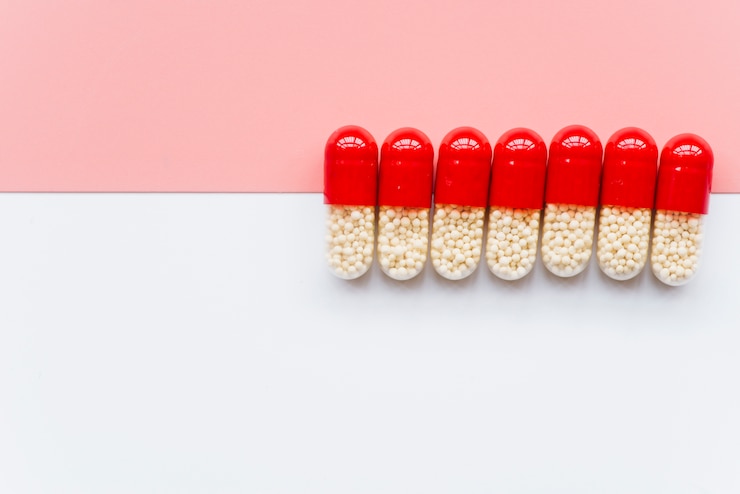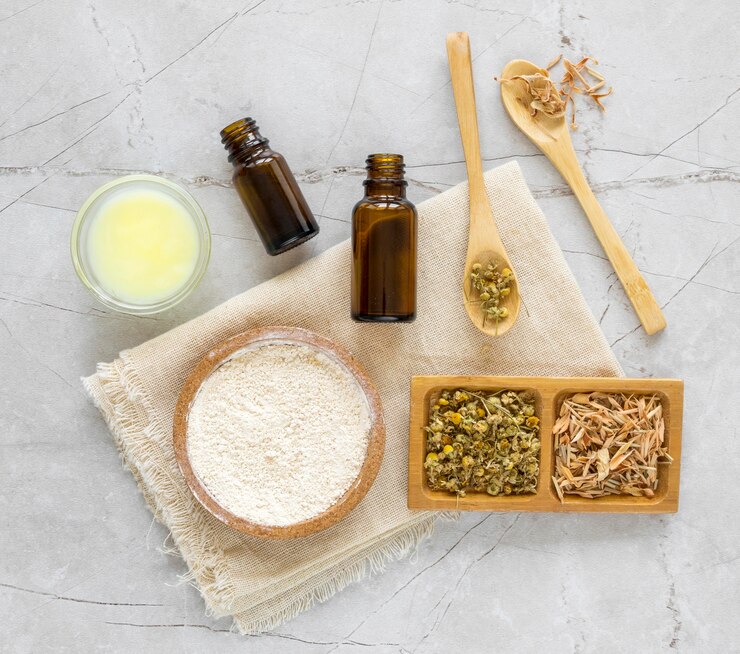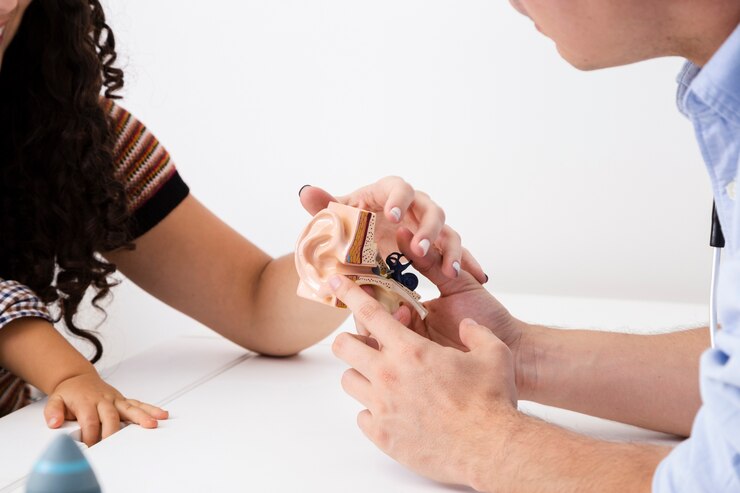
Get cozy; this is a long read! Before you start taking any of these supplements, please remember this isn’t medical advice. It’s best to consult a natural healthcare professional to determine what’s safe and effective for you.
Now that we’ve covered that, let’s discuss some natural health supplements that have been shown to help manage rosacea symptoms. Keep in mind, that everyone is unique, so what works for one person may not work for another. For example, small intestinal bacterial overgrowth (SIBO) can contribute to rosacea, so addressing SIBO might help. However, not all rosacea cases involve SIBO, and if you have SIBO, taking probiotics could worsen the situation. H. pylori is another known cause, but not everyone with rosacea has elevated H. pylori levels. You can ask your doctor to test you for H. pylori to rule it out.
Before diving into the supplements, remember that they should complement a healthy diet. If you’re eating unhealthy foods, no supplement will change your skin condition.
Treating rosacea is often a process of trial and error. It took me 3-4 years of research and experimentation to find what worked for me. You can see my before photos here. There were days when I was too embarrassed to appear on social media or in public.
Approximately 14 million people in the U.S. live with rosacea, and many cases go undiagnosed. Rosacea is one of the most common skin conditions and can negatively impact mental health, leading to depression and anxiety.
I chose a natural approach after visiting a dermatologist last year who suggested birth control, antibiotic cream (metronidazole), and three months of oral antibiotics (doxycycline). I was shocked by these recommendations after just a 10-minute chat with the dermatologist. Given everything I know about birth control and the importance of a healthy skin and gut microbiome, I didn’t fill the prescription. I didn’t want to disrupt my skin and gut microbiome with antibiotics for temporary relief. And the birth control pill? No way; it’s not a long-term solution for hormone balance.
After reading countless reviews and forums, I realized pharmaceutical options often don’t work in the long term and have negative side effects. If you’re on medication or using prescription creams, you can still support your body naturally—there isn’t a single clear path for treating rosacea, so do what feels right for you.
Now, let’s explore some promising supplements for healing and preventing rosacea.
**Probiotics**
Why? Healthy skin starts from the inside, and good gut health is vital for managing skin conditions like rosacea and acne. Studies show probiotics can significantly improve gut health and benefit the skin in numerous ways. If you have SIBO, probiotics might not be suitable.
**Benefits of Probiotics for Rosacea**
Which probiotics are best? Great question! Here are three strains showing promising results:
1. **Lactobacillus paracasei**: This probiotic can reduce skin sensitivity and strengthen the skin barrier. It also increases TGF-beta, crucial for skin integrity.
2. **Lactobacillus longum**: This strain boosts the skin’s defense against physical and chemical stressors and can decrease dryness.
3. **Lactobacillus plantarum**: Known for its antibacterial and anti-inflammatory properties, it supports healthy sebum and hydration, which is promising for rosacea.
Some probiotic strains may increase histamine production, a trigger for rosacea. However, strains like L. plantarum and L. longum can help degrade histamines. You can also reduce histamines by adjusting your diet and considering supplements like quercetin, holy basil, milk thistle (found in our Joyous Detox and Joyous Rejuvenate tea), green tea, and nettle. Our Radiance Tea includes both green tea and nettle for healthy skin!
As an experiment, I mixed my Hella Hydrating serum with probiotic powder and applied it to my cheeks at night. My face felt smoother, and inflammation was noticeably reduced.
**Saccharomyces boulardii**
This beneficial yeast, not a bacterium, is part of a healthy gut microbiome. It disrupts inflammatory pathways common in rosacea, making it a powerful anti-inflammatory agent. It helps eliminate H. pylori, supports the immune system, and can reduce flare-ups from inflammatory gut issues like IBS and colitis, both linked to rosacea. Additionally, it boosts secretory IgA, supporting the gut barrier and preventing leaky gut.
From personal experience, since I started taking it in February, my gut health and histamine tolerance have greatly improved. I recommend this brand—AOR.
**Zinc**
Zinc is crucial for cellular renewal and repair and healing skin lesions, which is especially beneficial for acne-prone skin. It’s an anti-inflammatory and antioxidant-rich mineral important for skin conditions like rosacea, acne, and eczema. Zinc supports the immune system and maintains skin barrier function. It also aids collagen synthesis and DNA repair, keeping your skin looking youthful and healthy.
Note: It’s vital to balance zinc intake as excessive zinc can interfere with copper levels. I recommend AOR Zinc-Copper Balance.
**Omega 3s**
Fish and fish oil, rich in EPA and DHA, work against inflammatory pathways. Omega-3 fatty acids are known to reduce inflammation and lower insulin-like growth factor (IGF-1), preventing hyperkeratinization of sebaceous follicles, which helps various skin issues, including rosacea.
I prefer cod liver fish oil for rosacea because it contains vitamins D and A, both beneficial for the skin. Nordic Naturals is my go-to brand, and it’s available in liquid form.
**GLA Borage Oil**
This is one of my favorite skin supplements! GLA, an essential omega-6 fatty acid, has well-known anti-inflammatory properties. It nourishes the skin from within, improving moisture, elasticity, and firmness, and helps strengthen the skin barrier.
Research shows GLA can help restore compromised skin barrier function, essential for reducing rosacea symptoms. It also helps with eczema and acne, reducing redness.
Since no food source provides sufficient GLA, I recommend supplementation—Smart Solutions is a great brand.
**Vitamin C plus bioflavonoids**
Vitamin C is vital for healthy skin. It’s involved in forming the skin barrier, collagen synthesis, and preventing oxidation that leads to premature wrinkling. It also modulates inflammatory chemicals, making it an anti-inflammatory superstar.
Rosacea often involves broken capillaries. Vitamin C helps by strengthening capillaries, preventing new damage. Although it won’t reverse existing damage, it helps prevent further issues.
I like this vitamin C complex because of its antioxidant and anti-inflammatory benefits due to the included bioflavonoids, which enhance vitamin C absorption. I recommend Progressive Vitamin C Complex or Liposomal Vitamin C.
**Astaxanthin**
Known as the “king of antioxidants,” this carotenoid is found in orange foods like salmon, oranges, and carrots. Studies show it’s a more potent antioxidant than vitamin C! It improves skin dryness and protects against free radicals and sun damage. Daily supplementation has been found to enhance skin texture, reduce age spots, and even minimize crow’s feet. It boosts the skin’s natural sun protection, but sunscreen is still necessary.
Its anti-inflammatory properties reduce skin redness and sensitivity, making it valuable for rosacea sufferers. I recommend Pure Encapsulations for astaxanthin.
**Other Considerations**
If hormonal imbalance is the root of your rosacea, DIM for hormonal balance could help. I personally used it for three months. Managing stress is also crucial, so consider adaptogenic herbs. I’ll cover lifestyle factors for managing rosacea in an upcoming post, focusing on stress as it significantly affects flare-ups.
Should you take all these supplements? The short answer is no; that would mean too many pills. Evaluate each supplement carefully and consult with a natural healthcare practitioner to decide what’s right for you. This is important because some supplements may be contraindicated with medications. For example, if you take blood thinners, avoid fish oil.
Want more tips on naturally managing rosacea? Check out these posts:
I hope this information helps. Feel free to ask questions or share your thoughts below.
Wishing you joyous health!
Thank you for all this information. What are your thoughts on the finacea cream that doctors often recommend for rosacea (azelaic acid)?
I haven’t tried it personally, but after reading many online reviews, I was hesitant. Some people find it effective as a spot treatment, but it might cause increased redness, itching, burning, stinging, or tenderness. If you decide to try it, test it on a small area first. This is my natural skincare routine: [link].
Thanks for the informative podcast. What brands do you recommend for collagen and corsaine?
Thanks!
I recommend Bend Beauty, Genuine Health, or Organika for collagen. I’m not sure what corsaine is.
Hello! It seems AOR Saccharomyces boulardii and Smart Solutions GLA can’t be shipped to California. Do you have any other brand recommendations? Thank you!
Look for S. boulardii from any clean brand without unnecessary fillers. For GLA, try Borage oil from a reputable brand. If there’s a Whole Foods or local health store nearby, ask for recommendations. Hope that helps!
Do you recommend any greens powder? I’m in Texas.
Have you tried AG1?


